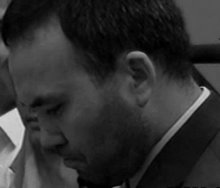
Ottawa should dispatch a special envoy to China to argue for imprisoned Canadian's release, spouse says
OTTAWA -- The wife of jailed human-rights activist Huseyin Celil urged the federal government yesterday to appoint a special envoy to try to win the Canadian man's release from a Chinese prison.
"I'm so worried. I feel for him," Kamila Telendibaeva said, describing concerns for her husband's safety after reports he may have been tortured.
At a news conference on Parliament Hill, Ms. Telendibaeva also appealed to Beijing to release Mr. Celil to Canada when Foreign Affairs Minister Peter MacKay meets with Chinese officials next week.
"Send my husband home to me and our children," she said.
A special envoy could raise the political profile of the case and co-ordinate Canadian government efforts to bring the man home, according to Alex Neve, secretary-general of Amnesty International Canada.
Many government departments and agencies have economic or other official dealings with China, he noted. They all need to raise concern about the Celil case "at every opportunity," he said.
Mr. Neve and Chris MacLeod, Mr. Celil's Canadian lawyer, said Ottawa and the International Olympic Committee need to remind Bejing authorities that China won a bid to host the Olympic Games on the understanding it would clean up its human rights record.
The IOC in particular should use its considerable influence with China to help get Mr. Celil released, they said.
When asked, Ms. Telendibaeva declined to comment on whether Canada should boycott the games if her husband is still imprisoned. That might be something to consider later, Mr. MacLeod suggested.
Mr. Celil, a member of Western China's Muslim Uyghur minority, escaped from prison in China in 2000, fleeing to Uzbekistan and Turkey before landing in Canada. He became a Canadian citizen in 2005.
Mr. Celil was arrested in Uzbekistan in March 27, 2006, while visiting his wife's relatives, and was extradited to China on terrorism charges.
On April 19, a Chinese court found him guilty of giving 80,000 yuan, or about $11,700, to the founder of a terrorist organization called Hezbollah in China's Guangdong province in 1997. The founder went on to purchase arms and train terrorists, the court said.




No comments:
Post a Comment